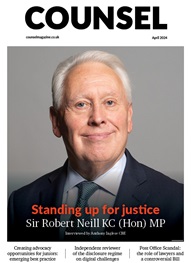*/
Town and country planning – Permission for development. The claimant challenged the grant of planning permission for the erection of a wind turbine in the Norfolk Broads. The Planning Court, in dismissing the application, held that the inspector appointed by the first defendant Secretary of State had complied with his statutory duty with respect to the Broads and had properly applied the relevant planning policies. Further, the condition as to noise had not been irrational and the grant of planning permission had not specified the model of turbine.
Town and country planning – Permission for development. The claimant challenged the grant of planning permission for the erection of a wind turbine in the Norfolk Broads. The Planning Court, in dismissing the application, held that the inspector appointed by the first defendant Secretary of State had complied with his statutory duty with respect to the Broads and had properly applied the relevant planning policies. Further, the condition as to noise had not been irrational and the grant of planning permission had not specified the model of turbine.


Sam Townend KC explains the Bar Council’s efforts towards ensuring a bright future for the profession
Giovanni D’Avola explores the issue of over-citation of unreported cases and the ‘added value’ elements of a law report
Louise Crush explores the key points and opportunities for tax efficiency
Westgate Wealth Management Ltd is a Partner Practice of FTSE 100 company St. James’s Place – one of the top UK Wealth Management firms. We offer a holistic service of distinct quality, integrity, and excellence with the aim to build a professional and valuable relationship with our clients, helping to provide them with security now, prosperity in the future and the highest standard of service in all of our dealings.
Is now the time to review your financial position, having reached a career milestone? asks Louise Crush
If you were to host a dinner party with 10 guests, and you asked them to explain what financial planning is and how it differs to financial advice, you’d receive 10 different answers. The variety of answers highlights the ongoing need to clarify and promote the value of financial planning.
Most of us like to think we would risk our career in order to meet our ethical obligations, so why have so many lawyers failed to hold the line? asks Flora Page
If your current practice environment is bringing you down, seek a new one. However daunting the change, it will be worth it, says Anon Barrister
One year on and the Court of Appeal fails to quash convictions after receiving evidence of racism in the jury room, and there are still no revisions to the Equal Treatment Bench Book , says Keir Monteith KC
A cultural life and times
In a new video-podcast series, Frances Gibb asks some of the most senior former judges about their time in office, their key decisions and dealings with ministers